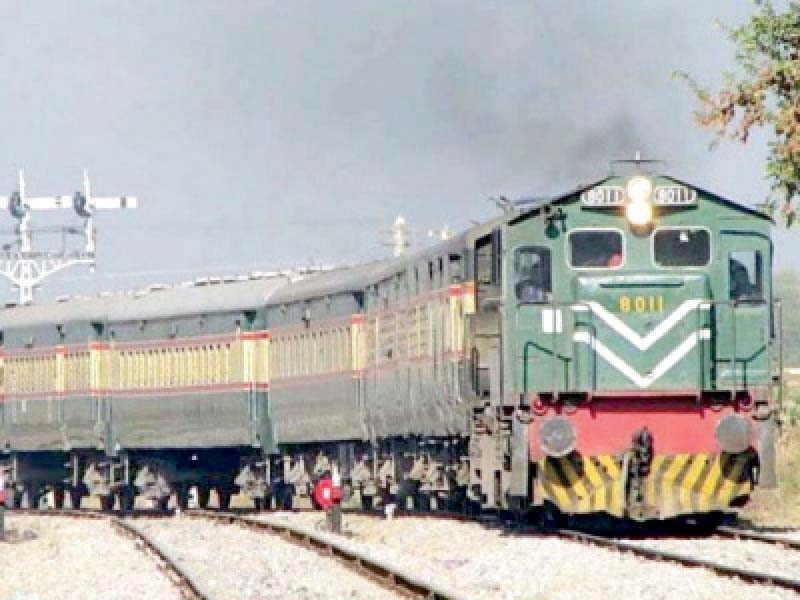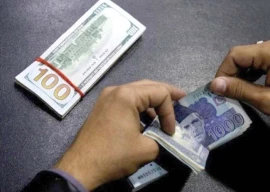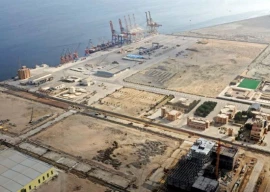
Pakistan on Monday rushed to approve two infrastructure projects under the China-Pakistan Economic Corridor (CPEC) at a cost of over $11.3 billion aimed at putting them before the Chinese authorities for fast-track implementation during Prime Minister Shehbaz Sharif’s visit.
The Executive Committee of National Economic Council (Ecnec) approved the $10 billion Mainline-I project of Pakistan Railways and the $1.3 billion Karachi Circular Railway project. It was an emergency meeting as no Ecnec huddle was slated for Monday.
The committee gave “in principle” approval to both the schemes as no proper homework had been done before calling the meeting. Ecnec met hours before PM Shehbaz Sharif’s visit to China. Finance Minister Ishaq Dar chaired the meeting.
Ecnec approved, in principle, a 45% increase in the cost of ML-I project to nearly $10 billion. China had refused to provide funding at the earlier approved cost of $6.8 billion, which delayed the project for years.
Recently, Planning Minister Ahsan Iqbal appealed to China to fast-track the processing of ML-I project, else the railway’s main network would collapse in a year.
“Ecnec considered and approved, in principle, the Ministry of Railways’ modified PC-1 for up-gradation of Pakistan Railways’ existing Mainline-1 (ML-1) project at a total cost of $9.85 billion subject to the recommendation of cost, technical details and preferably an equity participation financial model,” said an announcement of the Ministry of Finance.
Last week, the Central Development Working Party (CDWP) – the first tier for the approval of mega development schemes – cleared the ML-I project for final approval by Ecnec.
While clearing the project, the largest CPEC scheme, the CDWP issued certain directives, which remained largely unimplemented.
CDWP instructed that a project monitoring and implementation unit should be established by the Ministry of Railways to implement and monitor the project. It said that the increase in cost from $6.8 billion to $9.9 billion should be vetted by a third-party consultant and the certified cost should be submitted by the Ministry of Railways before the presentation of a summary to Ecnec.
Also, the CDWP gave directives that the packaging and phasing of the project may be reviewed and intra-packaging adjustment may be carried out by the Ministry of Railways in consultation with the Chinese to make the work packages more realistic and practical.
The Ministry of Railways would also present an updated business plan and a copy of the already prepared Pakistan Railways Strategic Plan (PRSP), it said.
It will provide a complete plan for future transformation of the existing system into an electric traction system.
However, these details remain elusive due to the decision to call an emergency meeting and approve the largest-ever project, which involves a Chinese loan of $8.4 billion. Pakistan has reduced China’s financing share to 85% from 90% due to Beijing’s refusal to provide up to 90% financing.
In rupee terms, the project cost is a staggering Rs2 trillion. Due to the negligence of Pakistan Tehreek-e-Insaf (PTI) government, the ML-I project was left in the cold storage and as a result its cost in rupee terms increased multiple times, said Finance Minister Ishaq Dar on Wednesday.
CDWP gave its stamp of approval almost two weeks before PM Shehbaz Sharif’s visit to China. The premier will seek the concurrence of China’s National Railway Administration to start bidding process for the project.
Islamabad is keen to perform the groundbreaking ceremony of the project on March 23, 2023.
During the PM’s visit, Pakistan will propose the signing of a joint memorandum, indicating the timelines of project milestones, according to an official of the Ministry of Planning.
Under the project, a 1,733km-long route will be rehabilitated, 482 underpasses, 53 flyovers, 130 biker bridges and 130 stations will be constructed along the route.
ML-I starts from Karachi, passes through Kotri/ Hyderabad, Rohri, Multan, Lahore, Rawalpindi and terminates in Peshawar.
Even the nearly $10 billion cost was understated, as the Ministry of Railways had used a four-month-old exchange rate of Rs200 to a dollar. At today’s exchange rate, the project cost is understated by Rs190 billion, or about $856 million.
Ecnec also approved the China-funded KCR project at a cost of Rs292.4 billion, which was 44% higher than the initial estimate. The cost includes a Chinese loan of Rs263 billion, or $1.2 billion.
The last government of PTI had approved the financing structure of the project based on public-private partnership (PPP) mode. But the current coalition government instead decided to take a Chinese loan of $1.1 billion to implement the project on the model of Lahore Orange Metro Line.
The project is sponsored by the government of Sindh and all the local share of the cost will be borne by the provincial government. No funding will be provided by the federal government.
Published in The Express Tribune, November 1st, 2022.
Like Business on Facebook, follow @TribuneBiz on Twitter to stay informed and join in the conversation.



1731735822-0/Copy-of-Untitled-(1)1731735822-0-165x106.webp)

















COMMENTS (2)
Comments are moderated and generally will be posted if they are on-topic and not abusive.
For more information, please see our Comments FAQ